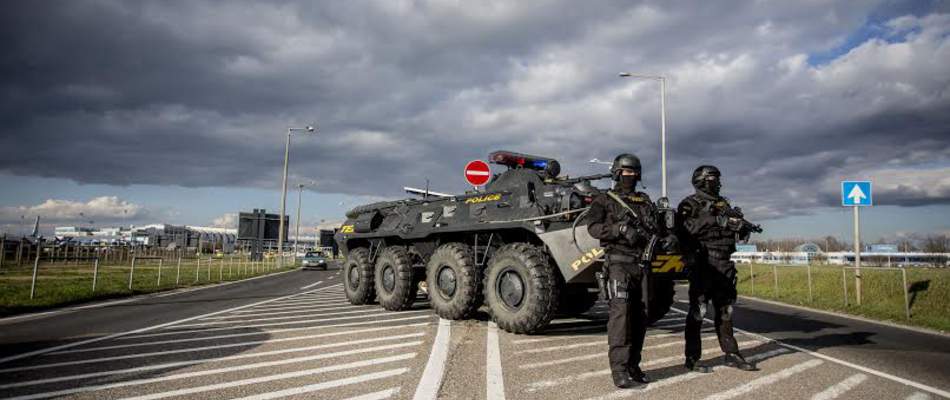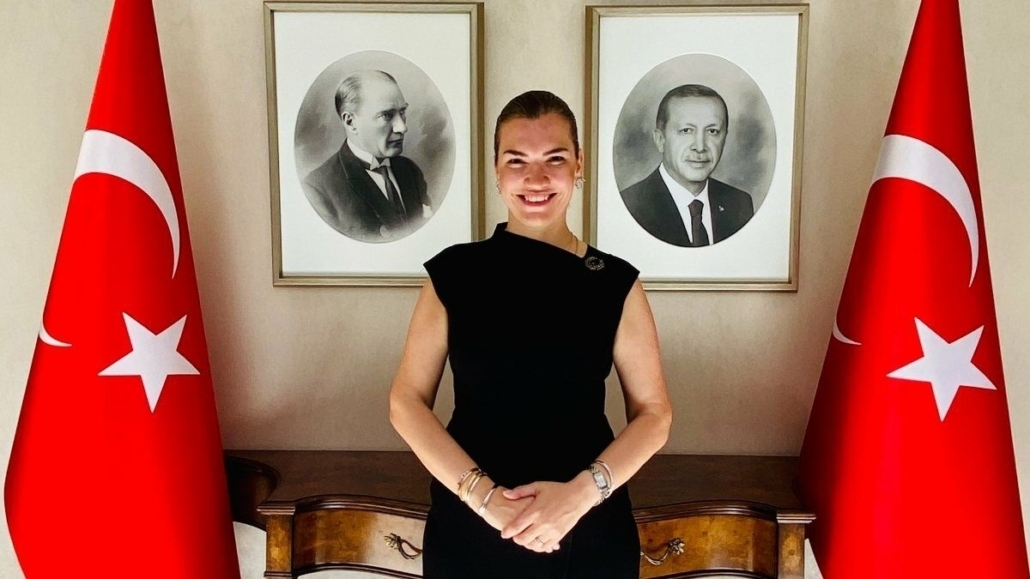Interview with Turkish Ambassador Karanis on the Turkish-Hungarian relations and many more!
We interviewed Her Excellency Ambassador Gülşen Karanis, head of the Turkish embassy in Hungary. During the interview, we talked about the devastating earthquake that hit Türkiye in February, the history of the Turkish-Hungarian brotherhood, upcoming events, her favourite pieces of Hungarian gastronomy and more!
Daily News Hungary (DNH): I must ask you about a very tragic event at the beginning of this interview. The earthquake has also touched many people in Hungary. Can you tell us exactly how much Türkiye and the Turkish people have suffered in this natural disaster? (Losses in numbers) Also you were involved in a way, as your husband was in the area affected by the earthquake.
H. E. Ambassador Karanis: As you mentioned, we experienced two consecutive earthquakes on February, the 6th. These earthquakes, measured respectively on a Richter scale of 7.7 and 7.6, caused massive destruction and devastation in South-East Turkey. A total of 11 provinces, 62 districts and almost 11.000 villages were affected. We lost around 50.000 people and around two million were evacuated from their homes.
Just for you to comprehend the all-powerful nature of the disaster, we are referring to an area 20% greater than the entire landmass of Hungary. This is particularly why, disaster relief and the WHO emergency response experts called these twin earthquakes as “the disaster of the century”. Both in terms of the number of losses and the ensuing suffering, they certainly brought about the gravest suffering in our Republican history.
Due to the harsh winter conditions in the region as well as the destruction of the fundamental infrastructure including transport, communication and energy, we were faced with enormous challenges. Our disaster and emergence response teams, whose own family and friends were also affected by the earthquakes, mobilized quickly and effectively.
Given the sheer magnitude of the disaster and its coverage, almost all families in Türkiye were affected one way or another. Our family was no exception. When the earthquakes stroke, my husband Ekrem was in Hatay, very close to the epicenter. He was working there as an assistant coach for the city’s football team competing in the Turkish Super League. He was trapped under debris for a while, yet lucky to be able to save himself. He attended to the rescue of his colleagues and players, but unfortunately some of them did not survive the earthquake. His team, Hatayspor, had to eventually withdraw from the competition.
DNH: As far as I know, the Hungarian people have expressed their great sympathy and have tried to help the victims of the Turkish disaster in many ways. The HUNOR rescue team is a source of pride for all of Hungary. Their help certainly meant a lot in Türkiye. Can you tell us about the reactions?
H. E. Ambassador Karanis: We are most grateful for the international solidarity displayed in the aftermath of the disaster. In response to our call for international assistance, many countries mobilized their search and rescue teams and extended us a helping hand. Hungary was one of the first to rush to our rescue.
The official Hungarian teams, including HUNOR, and 5 different non-governmental organizations dispatched their teams to the earthquake-stricken provinces. We received a total of 167 Hungarian personnel, accompanied by 28 search and rescue dogs. Together, they managed to save 35 Turkish people from under the ruins. Upon their return, there were ceremonies and events to honor the Hungarian teams. It was also very touching to see President Novák’s display of solidarity with Türkiye when she received them in the Sándor Palace on February, the 14th.
Following the disaster, we received many phone calls from our Hungarian colleagues in so much so that our lines were locked, our Google profile sustained a seven-fold increase in terms of viewings and many interactions with our social media accounts. Our Hungarian friends from different age groups, professions and walks of life made generous donations, both in-kind and cash, to our campaign. Donations literally poured in the Embassy chancery and our logistical warehouse. We could not withhold our tears when we saw small Hungarian children painting pictures and bringing them to us to be sent to children in the disaster area. They even sent their pocket money to the Embassy’s relief account. We dispatched all those materials to Türkiye with 6 planes and 12 trucks. The total amount collected in our donations’ account is more than 300.000 Dollars.
Foreign Minister Szijjártó visited Türkiye on 27 February to show solidarity and convey his condolences. Prime Minister Orbán also brought along 100 tons of medical and humanitarian aid last week. As Turkish Foreign Minister Çavuşoğlu particularly underlined, it was not the first time that Hungary responded to our call in the moment of need. We still remember your help and solidarity after the massive earthquake in 1999. Hungarian rescue dog, Mancs, was all over the Turkish newspapers after saving a 3-year-old girl. It must be an act of fate that his trainer, László Lehoczki, saved another child last month in Hatay.
Turkish people were really touched to watch László Pavelcze to burst into tears after saving another child. And some of our people wanted to reciprocate in their own way. When the Hungarian search and rescue team run out of gas, Turkish people did not let them pay in petrol station. A hotel in the region did not accept payment from Hungarian journalist covering the disaster. Recently, Hungary has demonstrated more than once that “a friend in need is a friend indeed”.
- Read also: Interview with Kosovan Ambassador Budima on the Kosovan-Hungarian relationships and many more
DNH: The Hungarian-Turkish brotherhood is not just an empty phrase, it has a serious background. What links can you highlight? The Turkic Council is playing an increasingly important role in the life of both countries. The Hungarian and Turkish governments are also in very close political contact. How is this reflected nowadays?
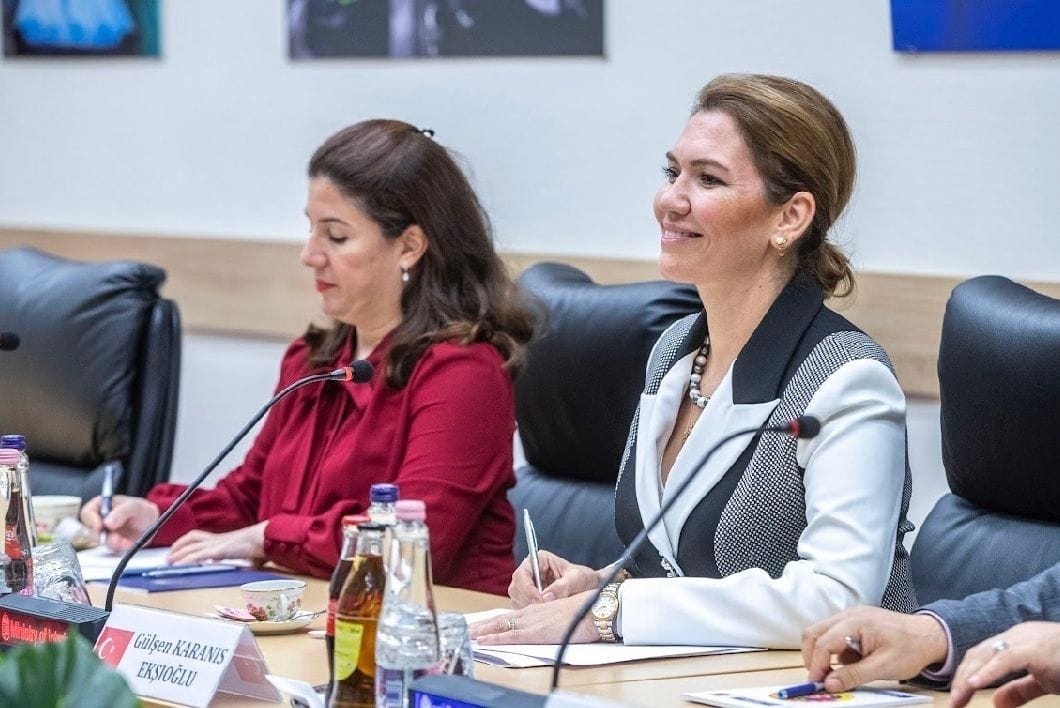
Gülşen Karanis, Turkish Ambassador. Source: Facebook/T.C. Budapeşte Büyükelçiliği/Turkish Embassy in Budapest
H. E. Ambassador Karanis: You rightly underlined the strong nature of Turkish-Hungarian brotherhood. Our relations have deep historical roots. We supported each other at important milestones. The traces of Hungarian national heroes like Kossuth, Rákóczi and Thököly Imre are all over Anatolia, from Kütahya and Tekirdağ to İzmit.
Similarly, we did not forget your support at crucial junctures like the Russo-Turkish War of 1877-1878 or later in Gallipoli in 1915. Similarly, our soldiers fallen at the Galicia front during the World War I, are buried here in Budapest. We recently commemorated them in the military cemetery in special service on March, the 18th.
Hungarian engineers, academics and experts have contributed to the development of the young Turkish Republic. In fact, we signed the first treaty as “the Republic of Türkiye” with Hungary back in December 1923.
I felt the special nature of our relation when I first visited the tomb of Gül Baba immediately after my arrival here in this beautiful city. It is yet another eternal symbol of our friendship.
Our relations have recently gained momentum and we successfully managed to diversify the portfolio of relations. We established “High-Level Strategic Council” in the form of joint cabinet meetings back in 2013. When Foreign Minister Çavuşoğlu visited Hungary in January, we decided to elevate the level of our relations to that of “Enhanced Strategic Partnership”. Hungary is one of the very few countries with which we have such high-level cooperation.
Only in the first three months of 2023, three Turkish Ministers visited Budapest, whereas Foreign Minister Szijjártó and Prime Minister Orbán visited Ankara. Late this month, we are expecting President Novák to pay an official visit too. This traffic illustrates the breath and depth of our relations.
Organization of Turkic States (OTS), the successor of the Turkic Council, is the latest addition to the portfolio of our relations. Hungary joined this important intergovernmental organization as an observer in 2018. Budapest now hosts the OTS Representation Office. Prime Minister Orbán attended the Extraordinary Summit of the OTS in Ankara on March, the 16th.
Our leaders get along very well and they maintain close contact on a range of regional and international issues as well. This paves the way for the enhanced strategic cooperation between our two countries. The strongest element in our relations, however, is the bond with our two nations at the people-to-people level and it will remain as such.
DNH: Next year will be a special year for the two countries. Can you tell us about the diplomatic anniversary and the series of events? In the near future, there will be major events this year. What are the biggest ones?
H. E. Ambassador Karanis: Next year will be a very special occasion in the long history between the Turks and Magyars. First and foremost, we will commemorate the 100th anniversary of the establishment of diplomatic relations between Türkiye and Hungary.
We would like to celebrate the centenary with special events that would span the entire year. Both our governments decided to mark 2024 as the “Year of Culture”. On our part, we are planning to organize many cultural, artistic and sports events all across Hungary. Our aim is to organize “100 events for the 100th anniversary”. Our Hungarian friends will hear more about Türkiye in the year to come, and we would be pleased to invite you and your readers to our events.
Our President is envisaged to visit Budapest for the next meeting of the High-Level Strategic Council in December 2023. This will mark the opening of the Year of Culture between Türkiye and Hungary. I know that the Hungarian side is also planning many events for this joyous occasion and the closing event will take place in Ankara at the end of the year.
DNH: On the economic front, there have been some major Turkish investments recently and there are likely to be more announcements. Where can Hungarian businesses (services, industry, food) enter the Turkish market?
H. E. Ambassador Karanis: Economic and commercial relations is one of the key driving forces in our bilateral relations. Last year, we sustained a 13% increase in our trade volume and reached around 3,5 billion Dollars. Our target is to increase this figure to 6 billion soon. This is our vision and we work together to reach this target.
Last year, we established a new platform to ensure coordination and coherence on the economic front, while the Joint Economic Commission between the two countries held its 8th session in Budapest in January. We hope to convene the newly established Joint Economic and Trade Commission with the participation of business circles in recent future.
We are pleased that around 500 Turkish businesses are currently operating in Hungary. Turkish construction companies recently undertook 55 projects, whose total worth already exceeded 1,5 billion Dollars. As a matter of fact, Turkish companies are building new production lines for global giants in Hungary. Turkish and Hungarian automotive companies have established a very comprehensive partnership. One of the world’s leading automotive glass suppliers and glass packaging firm is Turkish-owned and they will soon have a production facility in Hungary.
There are many Turkish investments in the field of tourism and hospitality including hotels and restaurants here in Budapest and elsewhere.
In terms of trade and investment, Türkiye offers a lot of opportunities. We have one of the fastest growing economies in the world and a sizeable domestic market with strong access to the surrounding regions. Due to our convenient location and connectivity, we host many regional headquarters in our country. We have a very young and dynamic population, who is well trained and highly skilled. The general climate for foreign direct investments is very favorable.
Over the years, we crafted a very supportive and advantageous ecosystem for research and development. This is particularly important for certain sectors, like technology, defense & aerospace, chemicals, energy, financial services and life sciences. Prospects for these sectors are bright. It is particularly telling that a Hungarian company has recently invested to manufacture incubators in our capital city. We encourage more Hungarian investments in Türkiye and stand ready to support any businesses who might be interested.
- Read also: Interview with Tunisian Ambassador Hermi about the Tunisian-Hungarian relations and much more
DNH: Tourism between the two countries is also growing. What figures can the two sides boast?
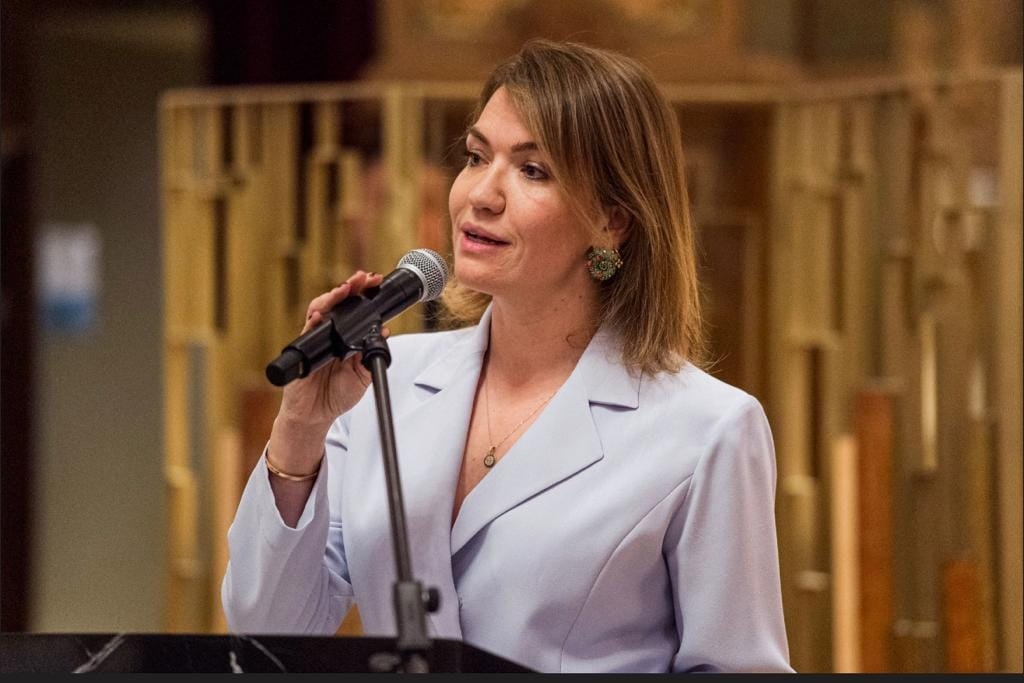
Gülşen Karanis, Turkish Ambassador. Source: Facebook/T.C. Budapeşte Büyükelçiliği/Turkish Embassy in Budapest
H. E. Ambassador Karanis: Our shared past, the Ottoman cultural heritage in Hungary and numerous places of historical significance for renowned Hungarian figures in Türkiye are behind the booming tourism numbers. Last year, around 170.000 tourists from Hungary visited our country and thousands of Turkish people visit different places in Hungary as well. We also have a sizeable Turkish student community. More than 1.000 chose Hungarian universities for their college education or spend sometime in higher education institutions as part of EU programmes.
I am pleased to hear that Turkish tourists are feeling at home in Hungary. Our cultures and cuisines are very close to each other. I consider myself as an eternal tourist as well. I am exploring different regions of Hungary and enjoying every moment of it.
DNH: I don’t know how well-known it is, but I really liked the idea of Turkish police officers on duty at the Hungarian border. How long has this cooperation been going on and what is the main purpose of this initiative? And how do the policemen feel here?
H. E. Ambassador Karanis: As transit countries for illegal migration, both Türkiye and Hungary raised concerns for a long time in different platforms. This phenomenon, which is too big and complicated to be handled by any single country alone, created some problems for regular cargo and passenger traffic.
In February 2021, our Foreign Ministers decided to boost cooperation in this regard. In December 2021, our respective Interior Ministers signed a memorandum of understanding. Turkish and Hungarian police forces are now patrolling together in your border crossings along Romania and Serbia. There are 50 police officers in these borders, who also extend their help for smooth passage of people and ordinary goods.
This project became one of the flagship cooperation schemes between Türkiye and Hungary. So far, we have received very encouraging feedback from Turkish and Hungarian officials as well as our citizens. Our police officers checked around 750.000 vehicles. Turkish travelers have been really happy to see our police officers with Turkish insignia extending them help while crossing borders. It is a textbook example of mutually beneficial cooperation.
DNH: It can’t be easy not having a family together because of work. Despite this, have you found a home in Budapest?
H. E. Ambassador Karanis: Throughout my career in different avenues, I managed to balance my work and family obligations with the help of natural talent of women. It has not always been easy. At times, albeit briefly, we had to stay apart.
Nowadays, we consider ourselves lucky as we are now united as one family. Budapest is a very welcoming city. For us, it is home away from home. My three kids settled well in their schools and already started enjoying their life. We strive to visit different parts of the country on every occasion. We are amazed by Hungarian history and culture as well as its natural beauty. Hungary offers an excellent base to explore the rest of central Europe as well.
It seems that we will be travelling a lot in the days and months to come!
DNH: You are a very active ambassador, as we can see from the press and social media. When you need to relax, what do you do? Do you have a favourite place in Budapest where you go to relax?
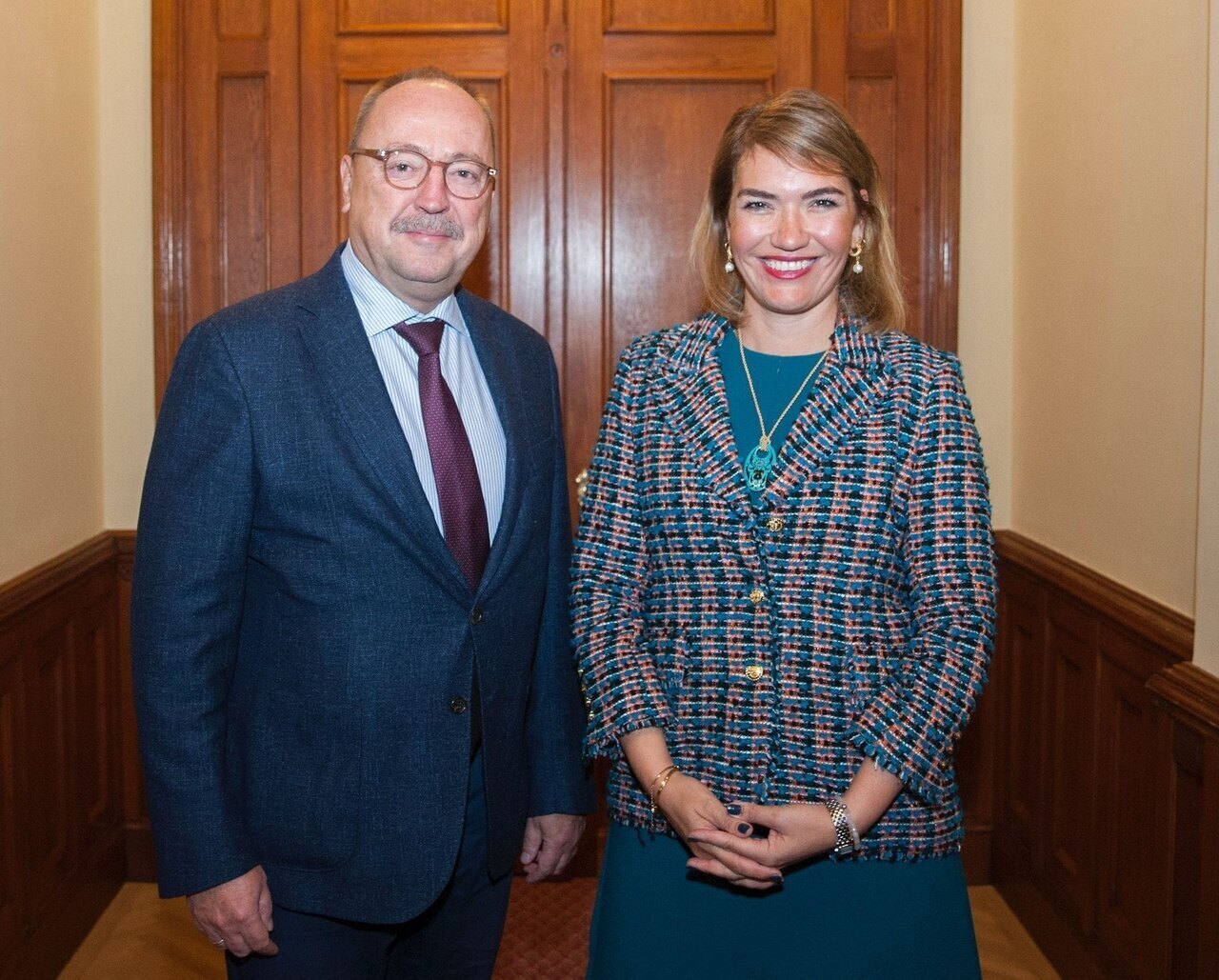
Gülşen Karanis, Turkish Ambassador and Zsolt Németh. Source: Facebook/T.C. Budapeşte Büyükelçiliği/Turkish Embassy in Budapest
H. E. Ambassador Karanis: All Turkish ambassadors maintain active and engaging profiles abroad. After all, as diplomats, it is our duty to build bridges and connect people. Investing in relationships to promote Türkiye and deepening relations with our host countries is part and parcel of our job.
Yet, it is true that I pay particular attention to develop close relations with the press and reach out to different segments of the Hungarian society. In today’s world, social media channels provide us with unprecedented ways and means for engagement.
I have an excellent team at the Embassy supporting my role as the Ambassador. We work hard for further improving the Turkish-Hungarian relations, and we use every opportunity to underline both the importance and potential of this very special connection between our two nations.
We must arrange another interview so that I can at least try to do justice in terms of my favorite places in Budapest. They are so many and so diversified! From finding treasures and vintage items in the Ecseri flea market to a relaxing walk along the Danube, I never experience a dull moment strolling in and around the city.
DNH: Outside of Budapest, which Hungarian cities and attractions have you enjoyed?
H. E. Ambassador Karanis: I pay particular attention to connect different regions of Hungary with Türkiye. I regularly visit different cities to meet with Mayors, Chambers of Commerce, Hungarian and Turkish businesses. In this regard, I visited Kaposvár, Debrecen, Szigetvár, Pécs, Esztergom, Székesfehérvár and Szeged so far and more visits will follow. I also have cities with Ottoman heritage like Szigetvár, Eger and Mohács on my list.
DNH: Turkish and Hungarian gastronomy are not that far apart. How much do you like Hungarian food?
H. E. Ambassador Karanis: There are many similar and almost identical dishes in our cuisines, including your famous stews, soups, renowned pogacas and even servings of bulgur along with main courses. I absolutely love the Hungarian food. It is very rich and tasty.
I must admit that your patisserie is my all time favorite. First Hungarian sentence that I have learned was “hosszú kávét kérek” next to my cake for the afternoon time.
please make a donation here
Hot news
Top Hungary news: train derailed, huge tax against short-term rentals, new train stations, Hungarians about the war, Dracula, cocktail bars — 21 October, 2024
Hungarian research could yield breakthrough in Covid-19 treatment
5+1 stylish cocktail bars in Budapest to explore with your friends after a long day
Railway stations in major Hungarian cities to be completely rebuilt with private capital
Young people planning armed attacks against protected persons in Hungary – US intelligence warns
Hungary, Laos agriculture ties strengthening: Minister Linkham Duangsavanh visits Budapest

